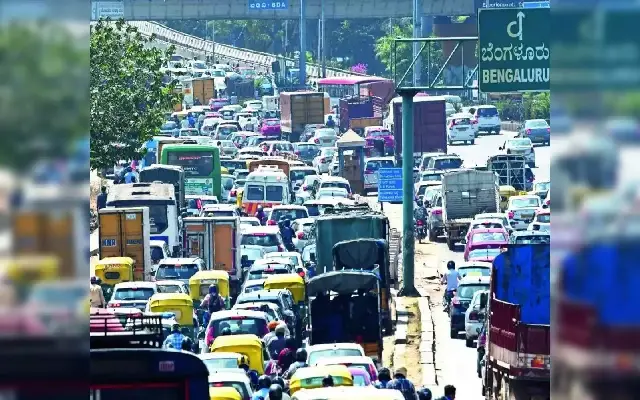The chronic traffic congestion in Bengaluru has garnered global attention, positioning the city among the ten worst traffic-affected urban centers worldwide. Surprisingly, Bengaluru’s traffic challenges have become a significant political issue in neighboring Kerala, particularly in Thiruvananthapuram, the state capital, where heavyweight politicians Shashi Tharoor (Congress) and Rajeev Chandrasekhar (BJP) are contending for victory in the Lok Sabha elections.
Focus on Infrastructure:
The Kerala Congress has raised concerns about Chandrasekhar’s ability to address infrastructure development in Thiruvananthapuram, citing the prolonged commute times, such as the 7 km journey from Hebbal to MG Road taking 45 minutes to an hour. The contentious steel bridge project proposed by the Siddaramaiah government in 2016, at a cost of Rs 1,300 crore, has become a focal point of contention, sparking protests and debates over its implementation.
Political Debates and Opposition:
The Congress party in Kerala has highlighted the plight of Bengaluru commuters, referencing instances of individuals missing flights due to traffic delays and advocating for infrastructure improvements such as the proposed steel flyover on Airport Road. However, the project faced opposition and was eventually scrapped, leading to accusations against Chandrasekhar’s organization, Namma Bengaluru Foundation, for allegedly spreading misinformation.
Criticism and Debate:
The unexpected involvement of the Congress party in Karnataka’s traffic issues has drawn criticism from figures like former Infosys CFO Mohandas Pai, who pointed out the irony of the Congress in Kerala targeting the Congress in Karnataka. Pai stressed the importance of addressing issues within Kerala, especially considering significant migration to Karnataka for better opportunities.
Interstate Dynamics:
Bengaluru’s water crisis has further fueled political discourse, with Karnataka Industries Minister MB Patil expressing concerns over Kerala’s attempt to attract IT companies amidst Bengaluru’s water shortage. Patil emphasized the need for interstate cooperation and criticized Kerala’s actions, highlighting Karnataka’s commitment to fostering an industry-friendly environment.
Kerala’s Perspective:
Kerala Industries Minister P Rajeeve had earlier touted Kerala’s abundant water resources and offered facilities to Bengaluru-based IT firms, citing the state’s 44 rivers as evidence of water abundance. However, Patil countered this by stressing Karnataka’s focus on innovation and sustainability in the face of water scarcity challenges.




